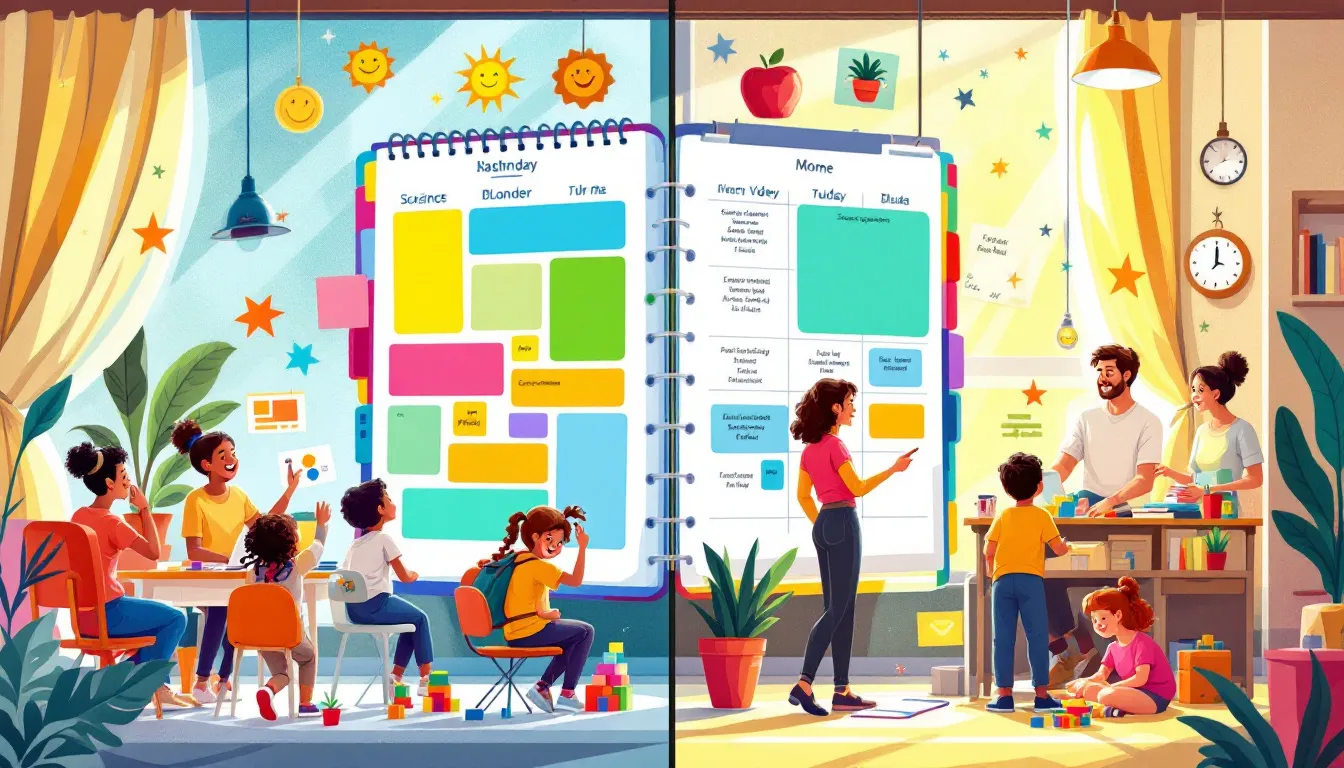Mediation is a quick, free, and collaborative way to resolve special education disputes. It helps parents and schools work together to address issues like IEPs, placement decisions, and services for students with disabilities. With the guidance of a neutral mediator, both parties can reach legally binding agreements while maintaining positive relationships.
Key Benefits of Mediation:
- Faster Results: Resolved in hours or days, unlike lengthy hearings.
- Free for Parents: Accessible to all families, regardless of financial status.
- Confidential: Discussions are private and encourage open communication.
- Child-Centered: Focuses on the student’s needs, not personal conflicts.
Mediation offers a practical alternative to formal legal action, saving time, reducing costs, and ensuring students get the support they need without unnecessary delays.
What Parents Need to Know About Special Education Mediation
Defining Special Education Mediation
Special education mediation is a voluntary and confidential process where parents and school districts collaborate with the help of a neutral mediator. The goal is to address and resolve concerns related to special education in an informal but structured setting [3].
This process focuses on issues such as:
- IEPs (Individualized Education Programs) and student evaluations
- Placement decisions and educational accommodations
- Special education services
- Other education-related matters tied to disabilities
Confidentiality is a core aspect of mediation, protected by law, which encourages open and honest communication between all involved parties [3][6].
Why Mediation Can Be Helpful
Mediation offers a practical way to resolve disputes in special education. It’s free for parents, faster than formal hearings, and helps maintain positive relationships between families and schools. Most importantly, it allows for solutions that are tailored to the student’s unique needs [3].
Unlike formal hearings that can drag on for months and create tension, mediation typically delivers quicker results. The process focuses on collaboration, with the mediator guiding discussions, clearing up misunderstandings, and helping both sides find common ground. This approach shifts the focus from conflict to understanding and problem-solving [3][6].
To make the most of mediation, parents should come prepared. A clear understanding of the process and its benefits can help parents effectively advocate for their child’s needs and achieve the best possible outcome.
Steps to Prepare for Special Education Mediation
Organizing Important Documents
Gather all key documents like IEPs, evaluations, medical records, school communications, and work samples. Arrange them in chronological order and create a summary sheet highlighting major events for easy reference. Bring enough copies for everyone attending the mediation to ensure smooth sharing of information.
Understanding Who is Involved
Mediation involves parents, representatives from the school district, and a neutral mediator working together to resolve disputes. Each person plays a key role in keeping the conversation centered on the student’s needs.
Parents can also bring additional support to the session, such as:
- Educational advocates
- Therapists familiar with the child’s needs
- Special education consultants
- Other professionals who can offer helpful insights
Legal Points to Keep in Mind
Familiarity with the legal framework of mediation can help parents feel more prepared. Here are some key points to understand:
| Legal Consideration | Details |
|---|---|
| Voluntary Participation | Both parties must agree to mediate |
| Cost | Typically free or low-cost |
| Confidentiality | Discussions are legally protected |
| Due Process Rights | Mediation does not waive your right to a hearing |
This approach has shown strong results. For example, during the 2014-2015 school year in New York State, 88% of mediation cases ended in agreements between parents and schools [4]. These numbers highlight the importance of preparation and understanding the process.
What Happens During the Mediation Process
Stages of Mediation
Mediation typically starts with setting clear ground rules and ensuring confidentiality. In New York State, Community Dispute Resolution Centers (CDRCs) oversee these sessions, with trained mediators guiding participants through three main steps [1]:
- Stage 1: Issue Identification: The mediator helps both parties express their concerns and priorities about the student's educational needs. Each side shares their perspective without interruptions.
- Stage 2: Solution Development: Participants work together to brainstorm possible solutions, with the mediator facilitating discussions to identify areas of agreement and compromise.
- Stage 3: Agreement Creation: Once solutions are found, the mediator assists in drafting a written agreement. This document becomes legally binding once signed [1].
Knowing these steps can help parents feel more prepared and confident during the process.
Comparing Mediation and Due Process Hearings
Families often weigh mediation against formal hearings. Here's a side-by-side comparison to help clarify the differences:
| Aspect | Mediation | Due Process Hearing |
|---|---|---|
| Format | Collaborative discussion | Formal legal proceeding |
| Cost | Free for parents | Legal proceeding |
| Decision Making | Requires mutual agreement | Decision made by hearing officer |
| Timeline | Resolved in hours or days | Can take months to conclude |
| Atmosphere | Informal and flexible | Formal and structured |
| Confidentiality | Private discussions | Results in a public record |
Tips for a Successful Mediation
The Colorado Department of Education suggests several strategies to improve mediation outcomes [8]. Here are some practical tips:
- Active Listening: Listen closely to the school district's perspective, even if you disagree. This shows respect and encourages constructive dialogue.
- Focus on Solutions: Avoid dwelling on past conflicts. Instead, concentrate on addressing your child's current and future educational needs. According to the Pennsylvania Office for Dispute Resolution, solution-focused discussions tend to result in higher agreement rates [5].
- Keep Records: While mediation is confidential, take notes during discussions since the final agreement is binding.
- Stay Child-Centered: Ensure the conversation remains focused on your child's needs rather than personal grievances.
With preparation and these strategies, the chances of reaching a positive outcome increase significantly.
sbb-itb-fb77983
Understanding Mediation in Special Education Disputes
Conclusion: The Benefits of Mediation for Families
Mediation is an effective way to address special education disputes, offering clear advantages for both families and schools. Its collaborative nature often leads to successful outcomes, making it a reliable option for resolving disagreements.
One major advantage is that mediation is completely free for families and schools. This ensures that families, regardless of their financial situation, can seek solutions that meet their child's educational needs.
By focusing on teamwork, mediation allows both sides to craft solutions that center on the student's specific needs. This approach not only addresses the issue at hand but also helps maintain or even strengthen relationships between families and school districts.
Agreements reached through mediation have legal backing and can be enforced in state or federal courts. This gives families confidence that the agreed-upon services and accommodations will be implemented as promised.
The process is also confidential [4], which encourages open and honest communication. This openness often leads to better understanding and more productive collaboration. Additionally, mediation works quickly, ensuring that students get the support they need without unnecessary delays [1].
For families weighing their options, mediation provides a balanced solution that respects everyone's perspective while keeping the student’s needs front and center. With its combination of accessibility, efficiency, and focus on collaboration, mediation is a powerful tool to ensure children with special needs receive the education and support they deserve. Access to the right resources can make the process even smoother and more effective.
Resources to Support Parents in Mediation
Local Dispute Resolution Centers
Local Dispute Resolution Centers offer expert guidance and neutral oversight to help families and schools work through disagreements. These centers provide free mediation services aimed at helping both parties find agreements that work for everyone involved [1].
To locate a center, you can reach out to your state education department, check your local court system's website, or connect with advocacy groups in your area.
In Washington state, for example, over 85% of participants in mediation report positive outcomes, showing how helpful these centers can be [9]. They often provide services like pre-mediation consultations, impartial mediators, private meeting spaces, and follow-up support to ensure progress.
Beyond formal mediation, parents can also explore educational tools and community resources tailored to their child's specific learning needs.
Homeschool Directory: Tools for Families

The Homeschool Directory is a valuable resource for families navigating special education, whether during or after mediation. It offers a variety of tools, including:
- Specialized Curricula: Educational materials designed to meet diverse learning needs.
- Community Support: Opportunities to connect with other families who understand the challenges of special education.
- Learning Resources: Worksheets and other materials to enhance your child’s education.
These tools can help parents build on mediation outcomes and provide additional support for their child’s learning journey.
FAQs
What does mediation mean in special education?
Mediation in special education is a voluntary and private way for parents and schools to work together with the help of a neutral mediator to settle disagreements. These disputes often involve:
- Student evaluations
- Decisions about educational placement
- Special education services
- Implementation of individualized education programs (IEPs)
Unlike formal hearings, mediation encourages open conversations and focuses on finding solutions that work for everyone involved [1][2]. The mediator remains neutral, guiding discussions without taking sides. Any agreements made are legally binding and enforceable in court, giving families a reliable alternative to due process hearings [1][5].
This service is often free or available at a low cost through Community Dispute Resolution Centers (CDRCs), making it easier for families to access [2][7]. Parents can request mediation by reaching out to their school district's special education committee [1].
To prepare, parents should:
- Gather all relevant documents
- Clearly outline their concerns
- Approach discussions with a cooperative attitude
- Consider bringing an advocate or support person if needed


